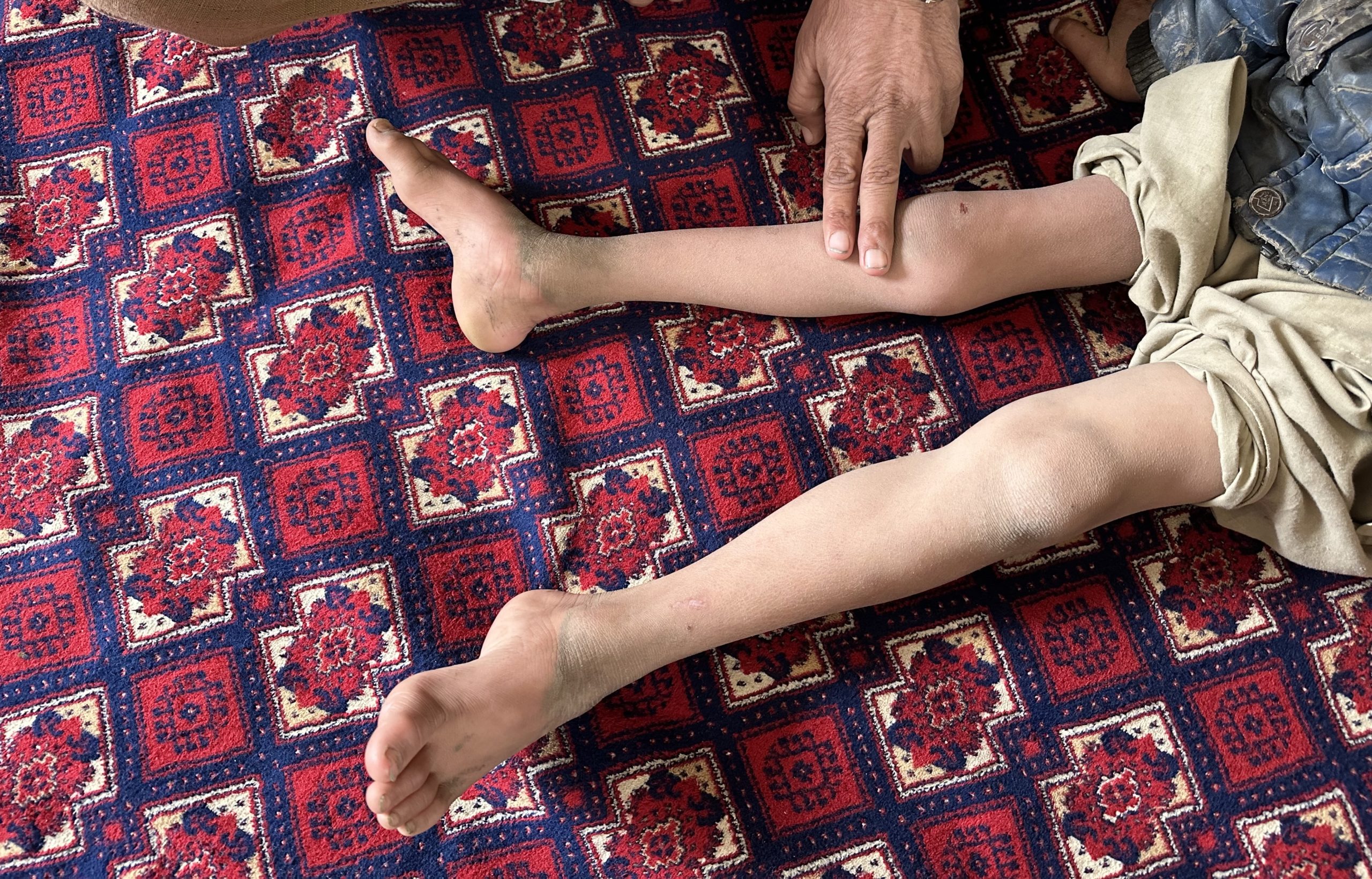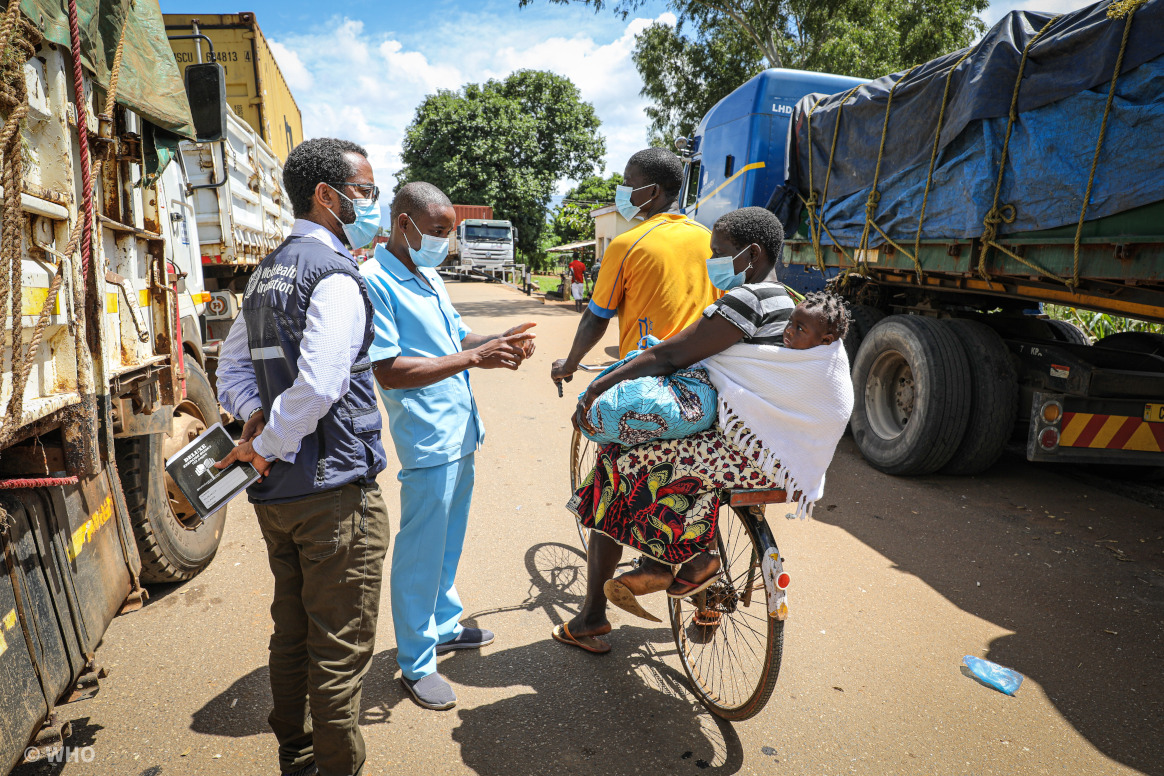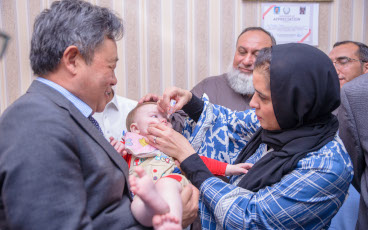Integration involves using polio tools, staff, expertise, and other resources to deliver important health interventions alongside polio vaccines – from measles vaccines and other essential immunizations to birth registration, counselling on breastfeeding, hand soap and more. It also includes incorporating polio vaccines into other planned health interventions when possible, delivering more services with fewer resources.
There is no one-size-fits-all approach to integration. From the remaining endemic countries to countries affected by variant poliovirus outbreaks, activities must be country-driven and adapted to fit the unique challenges and needs of different communities.
Humanitarian engagement in Afghanistan:
In Afghanistan, supplementary immunization activities are essential to vaccinating children. However, in the context of an unprecedented humanitarian crisis and extremely fragile health system, integrating polio efforts with other health services has helped the program reach even more children.
Endemic transmission of WPV1 in Afghanistan has been restricted to the east region. Remaining pockets of inaccessible, unvaccinated children amid a broader humanitarian crisis pose challenges to stopping the virus for good. Today, more than two-thirds of the country’s population is in serious need of food, clean water, functioning sanitation facilities, and basic health services.
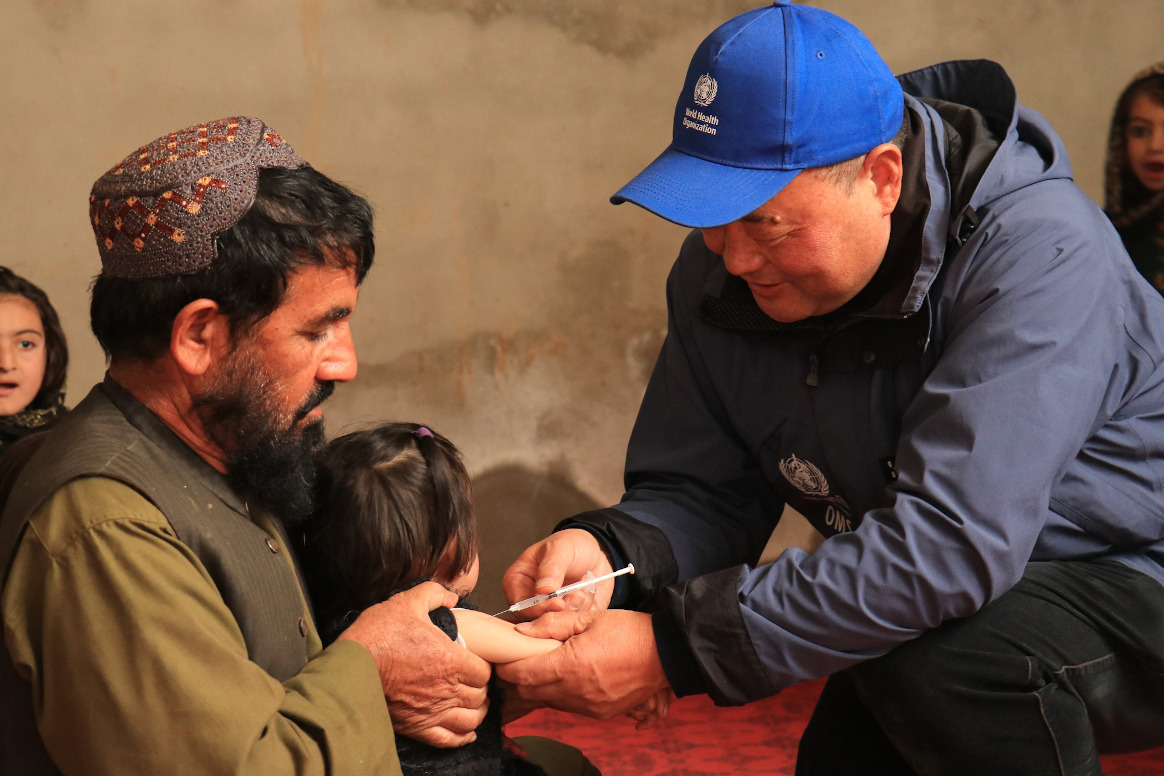
Building upon a strategy that has been in place for several years, ongoing collaboration with humanitarian organizations has demonstrated the value of integrating polio efforts with other health needs in the country. In 2023, the program began engagement with ten humanitarian partners operating in 12 high-risk provinces for polio across Afghanistan. Through these collaborations, the program and its partners have mapped and supported communities that lack basic health services, which has helped better identify and reach children still vulnerable to polio.
Between January and October 2023, more than 1 million polio vaccinations have been delivered through the engagement with humanitarian partners. Through this effort, it’s estimated that more than 30,000 children have been vaccinated who would have otherwise remained inaccessible to the polio program during its standard campaigns¹.
The Far-Reaching Integrated Delivery partnership in Somalia:
In Somalia, children are at high risk of encountering and spreading the poliovirus due to longstanding security challenges and a lack of health infrastructure, particularly in the south-central part of the country. As a result, the country has historically low routine immunization levels and faces the world’s longest-running outbreak of type 2 variant poliovirus.
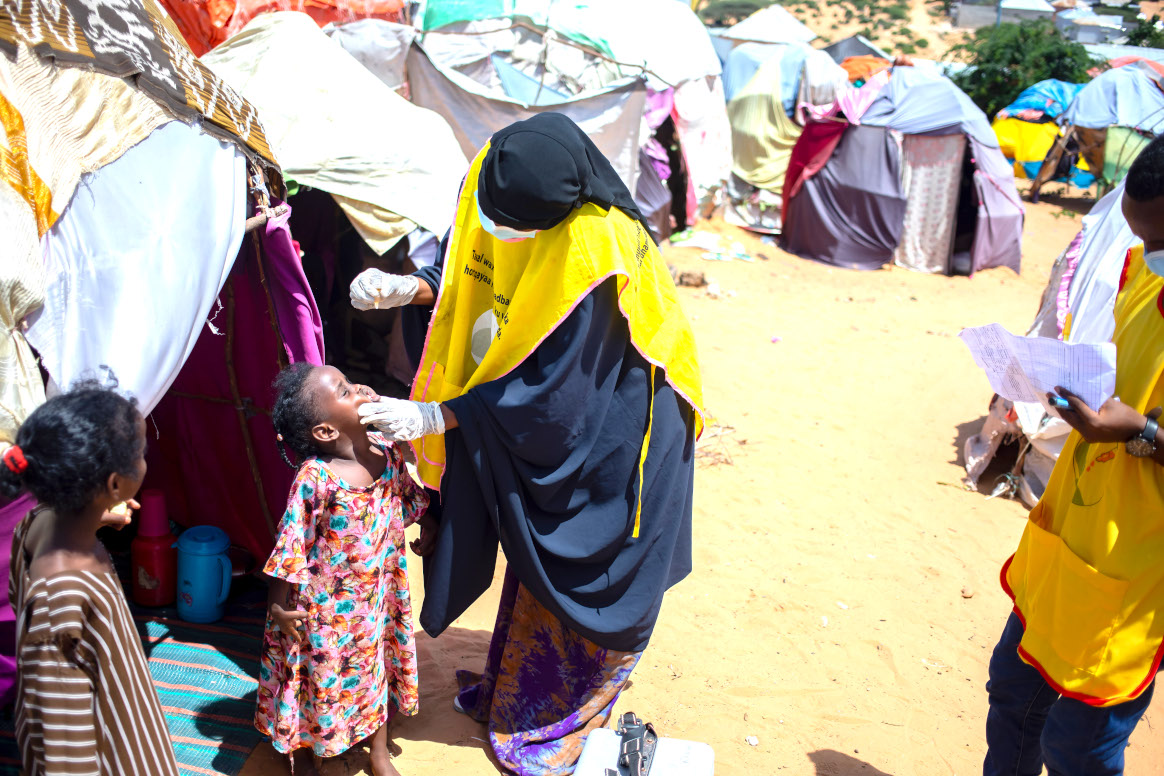
To help address these challenges, in October 2022, the GPEI partnered with the World Food Program Innovation Hub, Save the Children, Acasus, and World Vision’s CORE group, amongst others, to launch the Far-Reaching Integrated Delivery (FARID) partnership. The partnership’s primary goal is to stop poliovirus transmission and reduce deaths from preventable diseases and malnutrition.
To do this, the polio program and its partners have established a series of health camps across 20 districts in the country that provide families with vaccinations for polio and other infectious diseases, maternal health services, nutrition screening and supplements, and primary health consultations². These camps are tailored to address each community’s specific needs and aim to re-establish sustainable health systems that will continue providing primary health services on a routine basis.
Between October 2022 and June 2023, FARID partners have visited 136 high-risk communities in Somalia, reaching almost 30,000 people; vaccinating more than 8,000 children, 6,000 of which had never received any kind of vaccine; and conducting over 10,000 maternal health and 4,000 nutrition consultations³.
Read more about the polio program’s latest integration efforts here.
